QuestionQUESTION: -Baby Baja king snake(8 months, 2 feet long)
-20 gallon long tank
-aspen snake bedding
-40-50% humidity
-heat pad + 50 watt red heat bulb (exo terra)
-eats large pinkie mice every 5 days
-ate last month
-clean water every 2 or 3 days
Hi. Let me say first that l have a vet app for tomorrow but the vet is 3 hours away and l would like a second opinion. My baby king snake is acting really funny and l think it is neurological. He is usually all over the place and hyper like a puppy and NEVER misses a meal. The last few days he has not moved, puts his head at weird angles and cork screws his head. If l put him on his back, he will stay there, so l flip him back upright.He has refused any food and shows NO interest in it. He will tilt his head like he is looking at the ceiling and wiggle in place.
Any advice would be great thanks.
ANSWER: These symptoms are called ataxia and stargazing. They are commonly caused by viruses, and most often, they are fatal.
He hasn't eaten in a month yet he's 2 ft. long and is offered pinkies? Something doesn't sound right here. How many pinkies did he eat last, and did he defecate since? At any time did he regurgitate?
Is this a wild collected snake?
You also have not provided a temperature here...as temperature can relate directly to neurological issues and immune function, your neglecting to provide this, or apparently know this, is not helping this snake.
On occasion similar symptoms may present in baby Bearded Dragons when fed overly large meals, but in your snake this sounds like a viral infection.
I would disinfect your terrarium and decor and utensils well, keep him isolated and maintain clean protocols to mitigate cross contamination.
If he were here, I would give supportive care in the form of tube feeding only liquid formula, with a crystalloid replacement fluid mixed in, and probably put him on dexamethasone or a similar powerful corticosteroid to deal with what is likely an encephalitis or meningitis response to the infection. Antibiotics would also be prudent as preventative to secondary bacterial infection. Metronidazole may be helpful, but may skew observations if dose is too high. The other likely cause for this is head trauma or heat stroke, but I don't have enough information to rule that in or out.
Adenovirus associated with hepatitis and gastroenteritis are at the top of the list for snakes presenting with CNS and gastric symptoms. Dependovirus have also been suspected in Kingsnakes. Necrotic enteritis associated with gram negative bacteria or Clostridium spp. have been implicated in the death of snakes with adenovirus associated hepatitis. [D. Mader, Reptile Medicine & Surgery, 2nd]
Unless you have some money for viral PCR test to be sent to a lab, I'm guessing the vet will probably throw some Baytril at it and call it a day. It's important to stress that this probably isn't going to remedy this issue and the snake will likely die if it's only handled as a bacterial infection. In the absence of actual lab results to the contrary, in my opinion, it must be treated as a suspected viral infection. Antivirals would likely be most helpful, but they tend to be more expensive and some vets don't stock them. Acyclovir is listed in the formulary literature for tortoises with herpesvirus, but I have no reference for it's use in snakes.
Above all else, the way a virus typically kills is through inflammation (spinal cord, brain swelling, hepatitis, gastroenteritis), and secondary opportunistic infections. It's important in suspected viral cases to deal with the inflammatory effects on the CNS and elsewhere (gastric, hepatic), and while corticosteroids have some downside in immune suppression, they also are powerful anti-inflammatories. If the inflammatory effects can be mitigated and survived, the rest is much more survivable.
I would also advise you to keep this snake warm for sake of immune response...but not hot. You really need to know what the temp is in that terrarium with accuracy, and not guess. Excessive heat not only could have led to heat stroke and produced these acute symptoms just as well as a virus could, but in the case of CNS inflammation, excessive heat makes inflammation worse.
Bottom line though is that this is too much for a layperson to deal with, so just pass along the info to the vet about adenovirus and the rest being common findings in these snakes, and I'd advise you to check his experience with reptiles first. A vet who doesn't keep reptiles himself, or who hasn't had a continuing education course in reptile or exotic medicine, can be worse than no vet at all.
---------- FOLLOW-UP ----------
QUESTION: Sorry; forgot to mention the temps: 90 warm side 75 cool side.
He is as thick as a pencil and c/b. He usually eats a larger sized pinkie because the fuzzies are to big and he eats every 5 days. He hasn't gone to the bathroom in about a week and a half.
ANSWER: 2ft long, and only as thick as a pencil? How accurate is this length? I've kept a few different species of Kingsnake. This sounds too thin for that length. Maybe you should attach a picture. Seeing would be better than description.
He hasn't defecated in a week and a half, but he has defecated more than once since his last meal?
When he defecated last, did you note anything unusual about smell, color, or consistency?
Also, take mind to answer all questions. Has he regurgitated in the last few months, and how long have you had him?
---------- FOLLOW-UP ----------
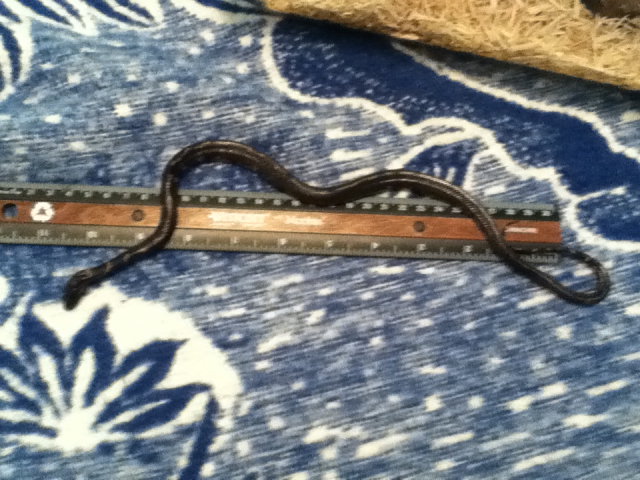 snake
snake 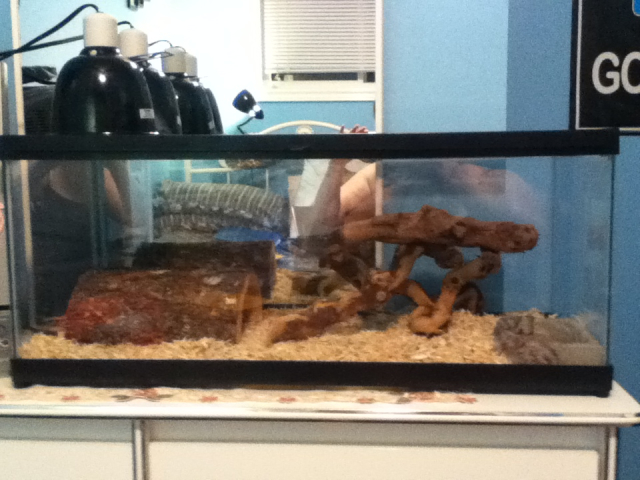 tank
tank
QUESTION: His poo is fairly normal, nothing unusual. He has never thrown up his meal and l've had him for 3 months. I measured him at about 22 inches full length. Her are some pics of him and his 20 gallon long tank.
AnswerI would venture a guess there are indicators in his feces and urates which indicate not normal, but if you don't know what you're looking at, then it doesn't help.
The picture resolution isn't great. If you have a better camera, email me another one at phrynosoms_texas@yahoo
From what I see here though, he looks emaciated, probably dehydrated, and his spine is too prominent, and he looks kinked up. What's going on with his skin? Is it wrinkled or really stiff anywhere? This would be typical in some of the viral cases I have seen.
The stress from a move to another habitat, temp variations or other stressors could have caused him to become immuno-compromised. Do you have any other snakes?
I would stick with assertion this is viral unless evidence to the contrary, and there's not much else to be done but ride it out and do the following:
1. Keep him and his habitat clean at all times. Throw out substrate and disinfect entire terrarium and his accessories. The easiest, safest, and most effective disinfectant, is actually boiling water. There will be no harmful residues. Make sure it is fresh from boiling, and pour it liberally over all surfaces. Household cleaners may kill this or that, but boiling water kills everything concerned.
2. I would then recommend wipe the terrarium down with .05% chlorhexidine gluconate, and you can wipe his skin down with it too. You can ask for this from the vet. It is relatively safer than your household disinfectants, and has good residual action on surfaces.
3. Keep him on paper towels and change them daily even if he doesn't soil them.
4. If, and ONLY if he has the coordination to keep his head out of the water and not drown, give him daily warm water soaks to hydrate. Monitor him at all times, and if he isn't coordinated enough to drink on his own or hold his head up (you don't actually see him drinking), then abort. I would recommend he be soaked in LRS or Normosol R, preferably to water, which you can also ask for from the vet. If he cannot safely be relied upon to soak and drink, he will have to be tubed.
5. He will need Carnivore Care or equivalent (vet) liquid formula diet, and he will have to be tubed this nutrition. If he does have a serious infection with gastric involvement, he is not going to be able to handle regular meals. I would recommend it be very thin and mixed with the aforementioned fluids, as Carnivore Care is pretty high on protein and this may be hard on his kidneys and liver right now, so it must start dilute. This will also provide him with hydration if he is not drinking. You will need an appropriate syringe, and a feeding tube (probably 5-8Fr. will be fine) and the vet will have to show you how to use this (I hope they know how, if not contact me). A snake in this shape will likely go into shock and die if force fed whole prey, so do not do that.
6. His weight and bowel movements should be monitored and notes taken daily.
7. He will probably need, like I said, some antibiotics just as precaution against secondary infection. The selection is important though. Without seeing him myself and getting more details, I can't say one over the other, but enrofloxacin, metronidazole, ceftazidime, and/or an aminoglycoside would be typical choices, however, the latter can be very dangerous to kidneys in cases of dehydration, and I would suspect this snake is going to have problems staying hydrated, so those class may not be the best choice here.
8. Antivirals might work, but I see no reference to an antiviral recommended on label usage for anything other than herpesvirus in tortoises. This could just as well also be a paramyxovirus or retrovirus (Inclusion Body Disease), as they share many symptoms.
9. A corticosteroid of high potency such as isoflupredone or dexamethsone may be one of the most helpful medications in this case to mitigate inflammation on the parts of the nervous system which lead to these neurological symptoms. It is the swelling in the brain and on the spinal cord that cause such loss of motor control, stargazing, and eventually respiratory failure.
http://www.laboklin.com/pdf/en/lab_0801_reptiles.pdf
http://www.petmd.com/reptile/conditions/digestive/c_rp_Adenoviruses#.UPzCdrXV8UE
http://www.eaza.net/activities/tdfactsheets/002%20Adenovirus%20Infection%20In%20



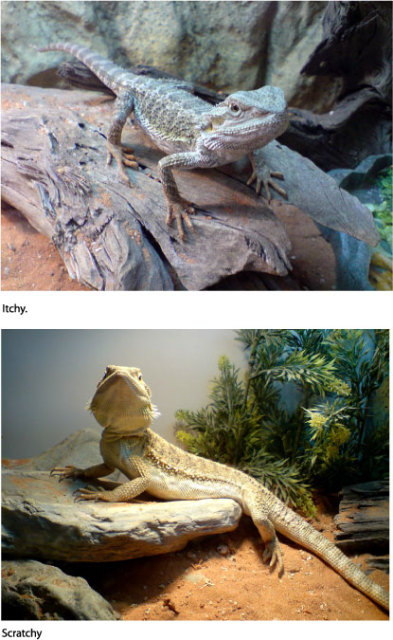 bearded dragon vs rankin dragon.
QuestionItchy & Scratchy
QUESTION: Hello,
I
bearded dragon vs rankin dragon.
QuestionItchy & Scratchy
QUESTION: Hello,
I
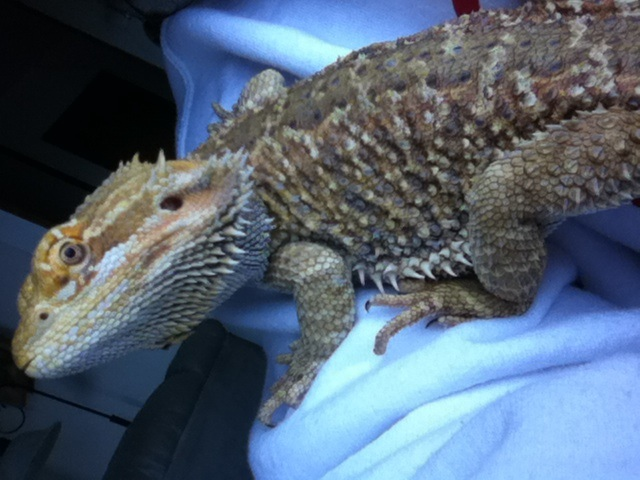 My 9 month old beardie
QuestionOscar
Oscar
QUESTION: My boyfrie
My 9 month old beardie
QuestionOscar
Oscar
QUESTION: My boyfrie
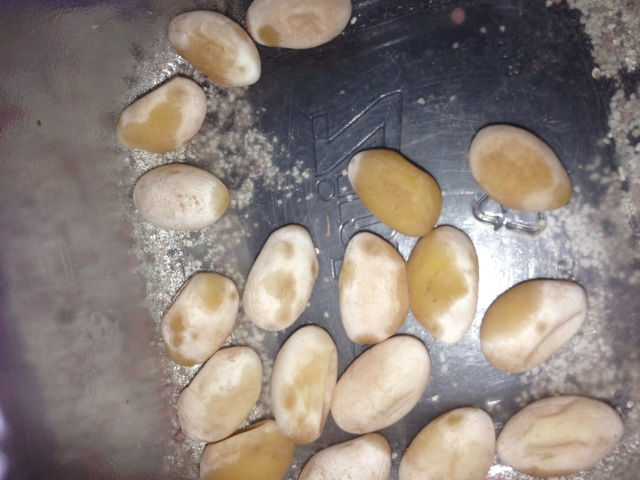 Bearded Dragon Eggs.
Question
Eggs Eggs
I purchased a pair of b
Bearded Dragon Eggs.
Question
Eggs Eggs
I purchased a pair of b
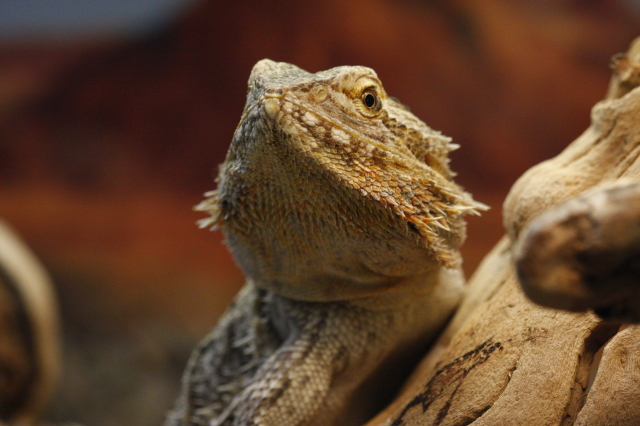 Bearded Dragon Will not Eat
QuestionQUESTION: My female bearded dragon (8 years old
Bearded Dragon Will not Eat
QuestionQUESTION: My female bearded dragon (8 years old
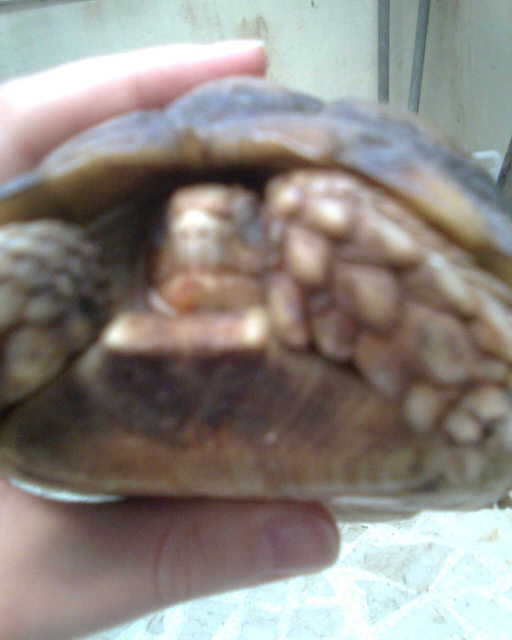 tortoise is sick
Questiontortoise
QUESTION: hi im a 23 year old f
tortoise is sick
Questiontortoise
QUESTION: hi im a 23 year old f